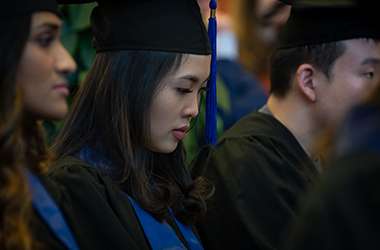Post-Study Work Visa in Netherlands and Australia "Too Short"

Post-Study Job Prospects Increasingly Important for Prospective Foreign Students
Post-study working rights for international graduates in the Netherlands are too short to find proper employment, a survey among international students and alumni at WUAS has found.
The Dutch government currently allows international students to spend a period of up to twelve months in the Netherlands to find a job as a highly skilled migrant ("kennismigrant") after graduation. During this period they have free access to the Dutch labour market. This is the "zoekjaar" or orientation year. Comparably, in Germany international graduates get 18 months to look for a job, in Australia it is 2 years, while in Canada it is 36 months.
More than 70% of Wittenborg Students Want 2 Years
More than 70% of the participants who took part in Wittenborg's online survey think in the Netherlands the work visa for graduates should be extended to 2 years, instead of just 1 year. Almost 70 students and alumni took part in the online poll. A further 22% believe it should be 3 years and 4.5% think 4 years is enough time. Only 3% think the current scheme of 1 year is sufficient.
Time Frame for Foreigners to Find Job 3 - 4 Years
Wittenborg did a quick poll after a study by its Australian partner, Deakin University, concluded that Australia's 2-year work visa is "too short" to give employers the confidence to hire foreigners. According to the report domestic graduates can take up to 3 years to find jobs in their fields of study, and 3-4 years is a more realistic time-frame for foreigners.
"Post-study work rights (PSWR) are becoming increasingly influential in international students’ decision on study destinations. The rights and opportunities to work in the host country post-graduation are integral to international students’ expectations about return on investment in overseas study, employment goals, life and migration aspirations," the report reads.
"Policy makers and education providers regard post-study work opportunities in the host countries as a drawcard for international students. Accordingly, enhancing employment prospects and outcomes of international graduates who stay in the destination country is increasingly crucial both for the host country’s sustainable growth of international students and commitment to delivering on promise."
According to the report, Australian employers either prefer international graduates with a permanent residency visa than those on the temporary graduate visa or who are unclear about what the latter entails. "Small to medium-size companies and branches of international companies provide up to 68% of employment opportunities for current and past visa holders. Branches of small to medium-size companies and international companies are more open to hiring this segment of the workforce and benefiting from a highly-skilled pool of talent who really want to secure employment.
"Most temporary graduates were on 2-year post-study work visas, and consider this too short to give employers confidence in hiring this cohort. The exploration of international graduates’ employment status and their lengths of stay in Australia indicate that graduates’ chance of securing a full-time job in their field of study improves with further stay in Australia post-graduation and with the transition to PR (permanent residency) status."
WUP 28/10/2019
by Anesca Smith
©WUAS Press